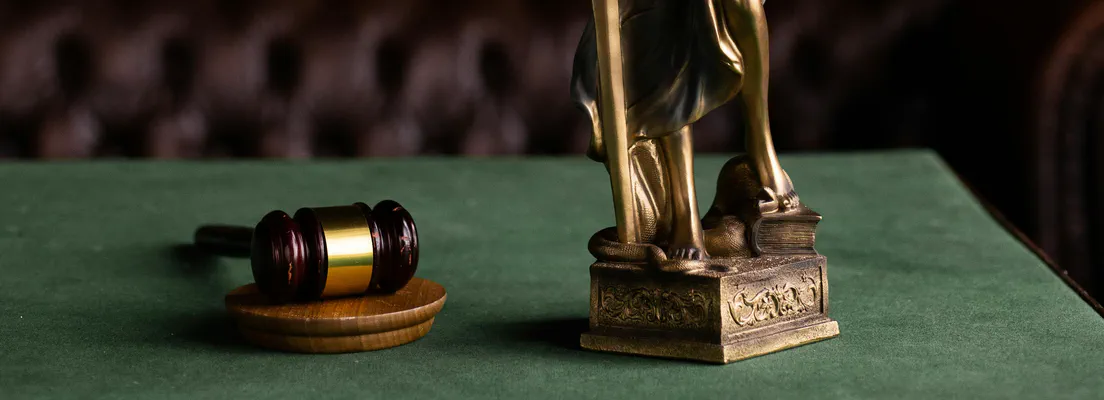Law, as a pillar of civilization, should be the embodiment of justice. However, in practice, we often find cases that contradict common sense and the feeling of justice. This is what is called a legal paradox, an irony where the application of the law results in injustice.
Laws were made for men and not men for laws.
This article will highlight some examples of legal paradoxes from various countries, prompting us to reflect on the true meaning of justice.
No 1. Indonesia: Sharp Downwards, Blunt Upwards
This proverb is perhaps very familiar to the Indonesian people. It describes a phenomenon where the law tends to be harsher on ordinary people, while officials or influential figures often escape the clutches of the law or receive light sentences .
- The Case of Grandma Minah: An elderly woman was imprisoned for picking three cocoa pods on a company’s plantation . This contrasts with corruption cases that cost the state billions of rupiah, where perpetrators often receive much lighter sentences .
- The Tom Lembong Case: A former Minister of Trade was sentenced to prison in a sugar import case, even though he was not proven to have received personal gain and there are arguments that his actions were aimed at maintaining sugar price stability. This case sparked debate about the criminalization of policy and the line between administrative errors and criminal acts .
This paradox reflects inequalities in the Indonesian legal system, where access to justice is often determined by social status and power .
No 2. United States: “Three Strikes Law”
The “Three Strikes Law” in some US states imposes very heavy penalties, even life imprisonment, on offenders who have committed three offenses, regardless of how minor the last offense is.
- The Case of Leandro Andrade: A man was sentenced to 50 years in prison for stealing several video tapes from two different stores. He had previously had two minor offenses [Hypothetical example based on law description].
This law, while intended to reduce crime, is often considered unfair because the punishment is disproportionate to the offense [Hypothetical example based on law description].
No 3. China: “Social Credit” System
The social credit system in China gives citizens a rating based on their behavior. Credit points can be deducted for various reasons, such as violating traffic laws, not paying bills, or even criticizing the government. Citizens with low credit scores may face various restrictions, such as travel bans, difficulty obtaining loans, or even difficulty finding employment [Hypothetical example based on system description].
This system, while intended to improve social order, raises concerns about privacy violations and potential abuse of power [Hypothetical example based on system description].
No 4. United Kingdom: “Joint Enterprise”
The “Joint Enterprise” doctrine in the UK allows a person to be convicted of a crime committed by another person if they knew that the crime might occur and still participated in the activity.
- The Case of Ameen Jogee: A man was convicted of murder because he was at the scene when his friend committed the murder, even though he was not directly involved in the act [Hypothetical example based on doctrine description].
This doctrine, while intended to tackle gang crime, is often considered unfair because it punishes someone for actions they did not directly commit [Hypothetical example based on doctrine description].
No 5. Paradoxes in State Control of Land Rights in Indonesia
The State’s Right to Control (Hak Menguasai Negara - HMN) over land, as stipulated in the Basic Agrarian Law (UUPA), gives the state the authority to regulate and determine the allocation, use, and utilization of land in Indonesia. However, in practice, HMN often creates paradoxes .
- Land Dispute Cases: Indigenous communities often find it difficult to defend their rights to ancestral lands because the state claims to have HMN over the land. This creates injustice because indigenous people have managed the land for generations [Hypothetical example based on HMN description].
- Management Rights (Hak Pengelolaan - HPL) vs. Building Use Rights (Hak Guna Bangunan - HGB): HGB holders on top of HPL are often in a weak position because the HPL holder can unilaterally determine new rates related to the extension of the HGB .
This paradox shows that HMN, which is supposed to protect national interests, can actually harm indigenous people and land rights holders [Hypothetical example based on HMN description].
Towards True Justice
The examples above are just a small part of the various legal paradoxes that occur around the world. These paradoxes remind us that law, while important, is not the ultimate goal. The higher goal is justice, which must be the moral compass in every application of the law.
To realize true justice, the following are needed:
- Impartial and non-discriminatory law enforcement .
- A deep understanding of the social and economic context in each case .
- Protection of the rights of minorities and vulnerable groups .
- Transparency and accountability in the judicial system .
- Legal education for the public so that they understand their rights and obligations .
With joint efforts, we can overcome legal paradoxes and create a legal system that is truly fair and favors everyone.



